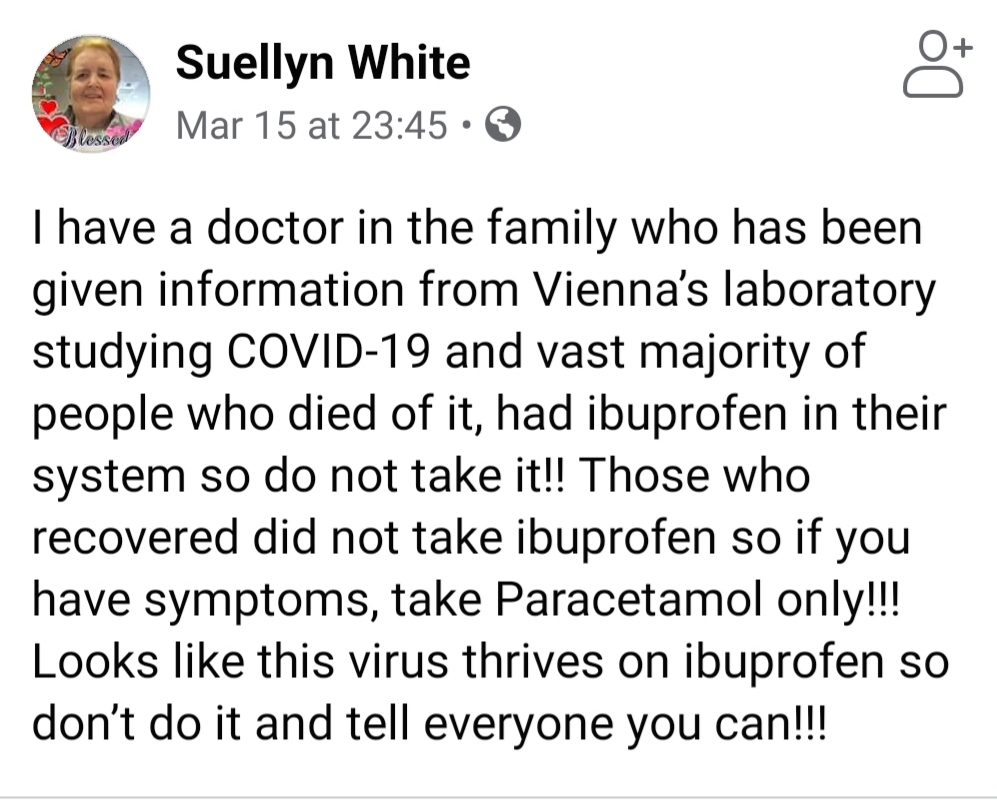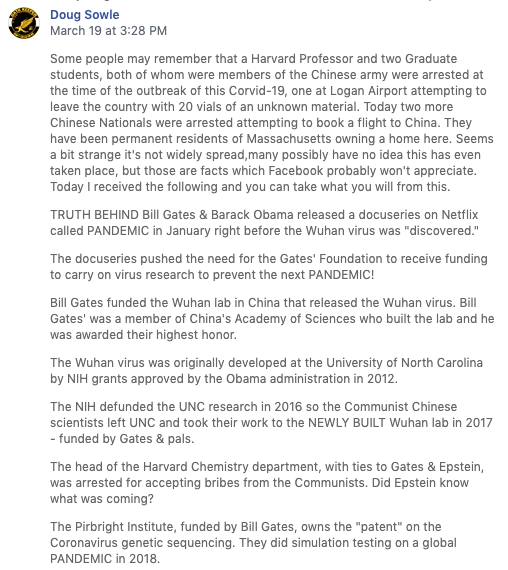Get Prescription Online Xanax It doesn’t matter the topic, there will always be a glut of information at our fingertips. Right now, the topic is the novel coronavirus, its spread, its mortality rate, and the measures put in place to limit transmission. As usual, there is good information and plenty of bad information. People share this information without even a basic examination of its merit. I have noticed there are a few different categories that bad information typically falls into.
- Bad information may look like good information
- Hearsay
- Good information shared in ways that limit its credibility
- Old information that may not be the best in an evolving situation
- Garbage information that has no merit at any time
https://www.zahrfreighters.com/ware/hicetujub/ When I use the term “bad information,” I am referring to two broad subcategories. The first subgroup includes the use of clearly marked opinion or commentary pieces as support for an argument. That other people exist with the same opinion as you is not proof that your opinion is correct or valid. Opinions do not equal facts. Facts can support opinions, but it should never be vice versa. The second subgroup is information that may be formatted to appear reputable, but it should not be used as substantiation for a debate. This includes content from media outlets that are known for sensationalism (New York Post, Fox News, anything relying on clickbait) or others with strong biases that drift away from fact reporting and more into the realm of commentary. The Media Bias Chart does a great job of showing a continuum of sources and where they fall in terms of bias and amount of fact reporting.

If your goal is to share factual information (and it should be), it is incumbent upon you to share it in the best way possible. Do not rely on hearsay or secondary/tertiary sources if a great primary source exists. A recent example in the image shows where Suellyn has “a doctor in the family” who has been “given information” from a “laboratory.” Her post seems very informative. After all, the person that told her this (a doctor – doctors are smart) heard it secondhand from a person at a laboratory (ooooh – scientists work in those). Then correlation was confused with causation by insinuating that a commonality between patients is proof of a causal effect. There were even some initial media reports that highlighted this potential connection thanks to a tweet from a French health official. That’s good, right? Suellyn was just trying to warn us all. Except Suellyn isn’t a doctor. She didn’t even name the doctor in her family, so there’s no way to verify the claim and no reputation at stake if it turns out to be wrong (and evidence strongly suggests that it was wrong). None of this stopped her post from being shared over 159,000 times. People may have made the choice to set aside accepted use of a common drug or alter a care plan put in place by a medical professional based on this information. Sure, people are each responsible for evaluating the information they rely on, but I would argue that it is therefore even more important for people to be responsible for the quality of the information they share with others. You’re not helping others do their best work at a weakened and vulnerable time of their life when you supply them with terrible tools. Thanks, Suellyn and every person who shared this well-intentioned falsehood. Thanks 159,000 times.
Good information can be shared in bad ways. If you can share a primary source or a quality secondary source, please do so directly when you can. Avoid sharing a screenshot of information. Information can be updated on a webpage or social media post, but your screenshot presents a freeze frame locked in time that will never be of higher quality than the moment it was captured. Heck, even above I shared a screenshot of Suellyn’s terrible post, but I included a link to the original post in the text. I somehow doubt the quality of her post will increase over time.
https://rqes.ca/base/pawagil/ In a rapidly evolving situation, old news may not still be the best news. Around election time, it is very common for election returns to be shared (and wild assumptions based on them) with only a small percentage of precincts reporting results. More recently, numbers relating to confirmed COVID-19 cases or deaths from it have been changing multiple times daily. This can lead to confusion or it could seem like poor quality reporting if you see different numbers in various places. It’s helpful to remember that the media outlets scurrying to produce content for you to look at are also having a tough time sorting it out. The first reports of events like these are often not entirely accurate. (linked commentary article from 2013). In times like the present, focus on sharing information that helps people plan and make good decisions. Knowing how many confirmed cases or deaths is not nearly as helpful as knowing about business/school closures or best practices for social distancing.
https://rqes.ca/base/fokovobes/ Last but not least is the garbage information that is omnipresent in our world. This information isn’t just missing the mark in terms of accuracy or a little outdated. It is wild conjecture with usually zero substantiation. I’ve also noticed that this information tends to be authored and shared by people who don’t like to be asked for substantiation. I’ll leave a full-size screenshot to this post below so that you can read a fantastic example of garbage information.

Notice the utter absence of sources. When a person shares this, they are endorsing the information, whether they realize it or not. If I were leafletting controversial information on a city sidewalk, it would be absolutely reasonable for people to assume that I was endorsing the information. People would be right for believing that my purpose was to persuade them and not just to stimulate a discussion or let them do the research to verify it. Moreover, if people that I know get this information from me, any credibility on the topic at hand that they perceive me as having, and indeed my credibility in all other matters, is immediately on the line. Unfortunately, many people do not see this as the case. However, if you are a vessel through which bad information passes, it is not unreasonable in my opinion to see that as being part of the problem rather than the solution.

Leave a Reply